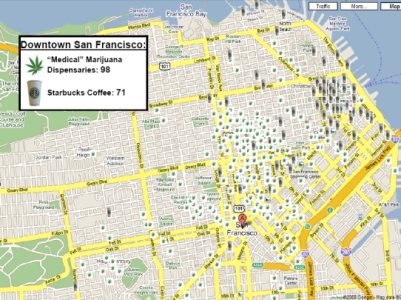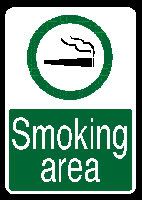If elected, will you create a Presidential Commission to study marijuana—its Prohibition, Budgetary, Social, and Health effects, and to make recommendations for marijuana law reform?
By George Rohrbacher, NORML Board Member
 Federal law prohibiting marijuana dates from 1937. The Marijuana Tax Stamp Act was debated on the floor of the House of Representatives for just over a minute and against the wishes of organizations such as the American Medical Association. Cannabis, as it was then known, was a component of at least 28 patent medicinesmade by industry leaders such as Merck, Eli Lilly, and Squibb. With the passage of this law, not only did the legal sale and possession of cannabis end, but all American research into medicinal use of marijuana ground to a halt, and even the ages-old knowledge of marijuana as a medicine went into deep remission.
Federal law prohibiting marijuana dates from 1937. The Marijuana Tax Stamp Act was debated on the floor of the House of Representatives for just over a minute and against the wishes of organizations such as the American Medical Association. Cannabis, as it was then known, was a component of at least 28 patent medicinesmade by industry leaders such as Merck, Eli Lilly, and Squibb. With the passage of this law, not only did the legal sale and possession of cannabis end, but all American research into medicinal use of marijuana ground to a halt, and even the ages-old knowledge of marijuana as a medicine went into deep remission.
Today there is a whole universe of information on the subject of marijuana that is brand-new since the Shafer Commission last studied marijuana in the 1970’s. The information then available lead Nixon’s own handpicked commission come to a surprising conclusion: they recommended no legal penalties for adults possessing up 100 grams of marijuana. Nixon freaked out, flew into a rage, canceled print runs of the report, and refusing to read the document, he buried the Shafer Commission’s recommendations. Tricky Dick did exactly the opposite and started America’s full-scale War on ‘Weed’, instead. And now forty years later, the War on Pot continues to grind on, getting larger with each passing year. After hundreds of billions of dollars expended, after millions of people arrested, is it not time we studied marijuana again? Because, by every measure available, America’s current approach to marijuana has failed—and, in the words of former-President Jimmy Carter, it is “…doing more harm than good.”
Here are 8 pressing reasons why a Presidential Commission on marijuana is needed now:
1) By October 10, 2008, America will have recorded its 20-millionth marijuana arrest, with people of color and the young arrested in disproportionately large numbers. It is time for a re-assessment of marijuana policy, plain and simple.
2) In addition to the pain and suffering visited by these millions of arrests on “we-the-people”, our government expends about $25 billion annually on its pot prohibition efforts, funds that should be expended elsewhere in the budget.
3) In addition to huge costs on expense side, we lose billions in taxation revenue, as well. Because, despite all government efforts to eradicate it, America’s vast underground marijuana market continues on, just as it has for the last seventy years, creating crime where there need be none, churning out billions and billions of dollars in untaxed and unregulated commerce. A tax and regulate posture as a method of control, verses the ‘no control/out of control’ situation we have today where kids can get marijuana more easily than beer—which alternative should America choose?
4) Marijuana use and purchase has been legal for the last 30 years in The Netherlands. This is the world’s great marijuana legalization experiment—and proof positive that a modern society will not collapse when pot becomes legal. Holland’s tightly regulated cannabis sales have created enormous tax revenues, while at the same time, usage rates for Holland’s teens continues to remain at just half of the usage rates of America’s teens even under our draconian prohibition model.
5) There are more than a dozen states over the last dozen years (covering about 1/5 of the US population) that have passed medical marijuana laws, mostly by voter initiative. ‘We-The-People’ created America’s state-by-state crazy quilt of medical marijuana laws, now what have ‘we’ learned from these experiments?
6) The modern use of cannabis/cannabinoids as medicine, buttressed now by17,000 scientific studies, validates humanity’s medicinal use of cannabis that has been going on for as long as recorded history. In any rational world, a non-toxic, useful drug like cannabis would have been re-scheduled long ago by the federal government from Schedule I, where it now resides with heroin, to Schedule III with most prescription drugs, or lower.
Why have the vested interests blocked cannabis from being rescheduled?
7) On 10/07/03 America’s own Department of Health and Human Services (HHS) received US Patent #6630507 for the use of marijuana’s active ingredients under the title, “Cannabinoids as antioxidants and neuro-protectants.” While HHS filed and supported this application, at the very same time, in other executive-branch Cabinet-level offices, at the ONDCP and the DEA, their legislative charters direct them to fight all use of marijuana as a medicine (the charters contain no standards to correct this prohibitionist posture if marijuana is shown scientifically to be useful as medicine). Either the HHS or the DEA/ONDCP must be wrong.
8.) A Presidential Commission hearing on the subject of marijuana law reform is a necessary exercise in government bureaucracy oversight, and is simply good government.
America, after our 20-millionth marijuana arrest—is that amount of human wreckage not enough? How much longer must our government pursue its failed policy of marijuana prohibition?
Presidential candidates McCain and Obama, show some guts, show some leadership and take the pledge: when you are elected, you will form a Presidential Commission via the National Academy of Sciences, or a like objective review body, to study marijuana.
************************************
NOTE: Now, all you fellow voters out there in Blog-ville: Help me out with this.
Help NORML.
Help America!
The Shafer Commission needs a 21st Century update. Does anybody think we need 10 or 20-million more marijuana arrests before Congress and the White House wakes up and changes our failed marijuana policies?
The Supreme Court has told us repeatedly not to expect a judicial ruling to fix this social disaster; the change, the correction, must come legislatively. Well, 20-million marijuana arrests is enough and a Presidential Commission is what’s needed at the onset of the next president’s tenure to provide the political cover and scientific validation for members of Congress to find the guts to take the votes needed to reform this sorry mess after 70 long, shameful, and pathetic years.
America eventually found the guts to end slavery, a social institution in place for over 200 years, evil and vile in its consequences but fiercely protected by special interests, even state governments; America can find the guts to end marijuana prohibition.
 It’s been twelve years since California voters approved the physician-supervised use, possession, and cultivation of marijuana, and it’s been nearly five years since the state legislature mandated that, “qualified patients … who associate within the state of California in order collectively or cooperatively to cultivate marijuana for medical purposes, shall not … be subject to state criminal sanctions.”
It’s been twelve years since California voters approved the physician-supervised use, possession, and cultivation of marijuana, and it’s been nearly five years since the state legislature mandated that, “qualified patients … who associate within the state of California in order collectively or cooperatively to cultivate marijuana for medical purposes, shall not … be subject to state criminal sanctions.”


 One of NORML’s primary functions is to
One of NORML’s primary functions is to 






 Federal law prohibiting marijuana dates from 1937. The
Federal law prohibiting marijuana dates from 1937. The 



















